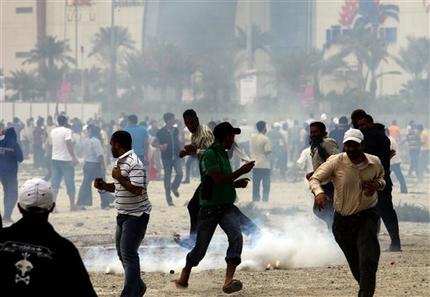Armed Yemeni security forces raided an apartment shared by four Western journalists Monday and deported them because of their coverage of a growing uprising against the country's longtime ruler, one of the reporters said.
The journalists, two Americans and two Britons in their 20s, contribute to publications including the Wall Street Journal, Time Magazine, the Los Angeles Times and the Washington Post.
"They came into our apartment this morning and they told us all to come to the immigration office," said Oliver Holmes, 24, a Briton. "They sat us down and said, 'You're being deported.'"
In the car on the way to immigration, the journalists were allowed to make phone calls. But their phones and passports were confiscated for hours while they were held at the immigration office and then as they packed up their apartment under the gaze of armed agents.
One of the agents told Holmes they were being kicked out because of their coverage of the uprising, which was inspired by the revolutions in Tunisia and Egypt.
The New York-based Committee to Protect Journalists said it was alarmed by the expulsion of foreign journalists, saying it may be a prelude to intensified repression of journalists seeking to cover the protests.
"We call on the authorities to revoke these explusions and allow all journalists to work freely," said CPJ Deputy Director Robert Mahoney.
A CPJ statement also quoted two local journalists as saying that a group of 20 people believed to be government supporters went to the Journalists Syndidcate in Sanaa Monday and threatened to burn it down.
 Twitter
Twitter














